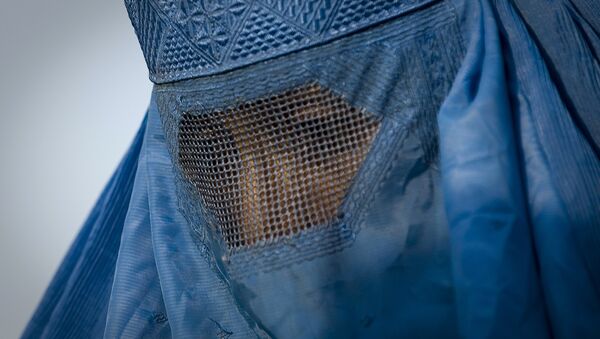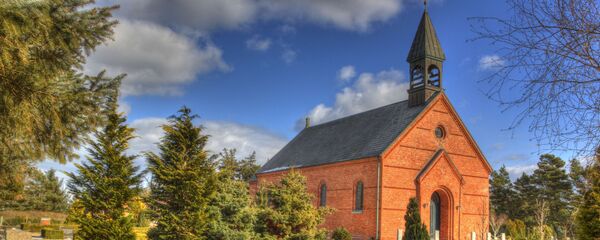The Danish government is adding the finishing touches on a bill that would ban face-covering garb in public places, colloquially called the "burqa ban." Justice Minister Pape Poulsen of the Conservative Party said in a press-release that the practice of concealing one's face went against the grain of Danish society.
While the Danish government previously considered punishing defiant burqa wearers with a prison sentence of up to three months, a fine of up to DKK 10,000 ($1,670) has been proposed instead.
In addition to the burqa, the bill, formally known as the "covering ban" includes other Islamic garments, such as the niqab. By contrast, exceptions will be made for fancy outfits, like Halloween masks, or hoods and other types of clothing that protect from the winter cold.
"It is not compatible with Danish values or respect for society to cover the face in public places. We will take care of the respect for our society and the values that bind us together. With a covering ban, we will draw a line in the sand and emphasize that here in Denmark we show each other respect and confidence face to face," Pape Poulsen wrote.
"Of course you may wear hats and scarves during the winter. You may also dress up as Santa," Pape Poulsen said.
While the proposal is now under consideration, it is expected to be adopted, to the joy of the right-wing Danish People's Party, which has proposed a burqa ban several times in recent years.
"We believe that the burqa and the niqab are symbols of social control, as when we see women living in violent marriages forced to wear burqas and niqabs and thus being excluded from the Danish labor market," Trine Bramsen of the Social Democratic Party told the Kristeligt Dagblad daily.
READ MORE: Pure Invention? Feminist Imam Accuses Danish Islam Critic of 'Revenge Porn'
Liberal Alliance MP Henrik Dahl was also supportive of the bill.
"The burqa and the niqab are not Islamic garments, but primarily Salafist ones. And Salafism is a very, very serious problem. It is the ideology of [Daesh], al-Qaeda and the Taliban, with which we have been at war, and of course we must fight it here in Denmark," Dahl told Danish Radio.
The ban, however, was slammed by Oussama el-Saadi, the imam at the controversial Grimhøj Mosque in Aarhus, which previously made international headlines by supporting the terrorist group Daesh (ISIS), who also made headlines when he called for adulteresses to be stoned and flogged.
"Although I do not support democracy, we live in Denmark and accept that there is democracy and live with it. But this is a direct copy of dictatorships where Muslims cannot practice their religion. Today you adopt a burqa ban, and then goes the headscarf. When this sort of prohibition comes, you cannot claim freedom of religion any longer," el-Saadi told Danish Radio. "As Muslims, we are oppressed in Denmark by a government that is fighting us," he added.
READ MORE: Show Me Your Face! Majority of Danes Support Ban on Islamic Headwear
A 2010 report from the University of Copenhagen found that the number of women who habitually wear burqas is less than ten, which has given rise speculations about whether the law will have any practical use at all.
"We'll have to see. It's hard to see now how much it will be used," Pape Poulsen told Altinget.
At present, there are no limitations on either religious or civil face-covering headwear in Denmark.
READ MORE: The New Black: Danish Fashion House Blazes Trail With First Hijab-Wearing Model



